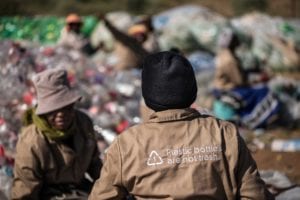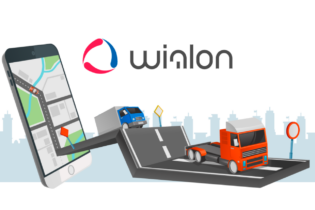As World Environment Day on June 5 urges everyone to Reimagine, Recover and Restore our global ecosystems, Coca-Cola recognises its important role in empowering and investing in the South African recycling sector.
Coca-Cola in South Africa, alongside its bottling partners is encouraging awareness about environmental challenges and taking action to protect our environment by helping to build a circular green economy to reduce the impact of packaging waste on the environment while driving inclusive growth. “Building green economies that bring industry, government, communities and other stakeholders together to recycle is the foundation of a sustainable future,” says Vice President of Coca-Cola’s South Africa Franchise, Phillipine Mtikitiki. “A litter-free world is possible if we think differently about how we manufacture our products, enabling collection, sorting at source, recycling and restoring ecosystems wherever we operate.” Through its commitment to designing, collecting and partnering to achieve a World Without Waste, Coca-Cola aims to recycle a bottle or can for each one it sells by 2030. The company is also working on designing packaging that is 100% recyclable by 2025 and ensuring that all its bottles contain 50% recycled material by 2030. As part of this commitment, the company continued the rollout of its 2L Returnable PET plastic bottle in 2020. The bottle is made from durable and hard-wearing PET that can be refilled and re-used as many times as the product quality standards allow, before being recycled into a new PET bottle. The iconic Sprite bottle was also transformed from green to more easily recyclable clear PET, making more bottles available for recycling. South Africa’s first water bottle made entirely out of recycled plastic under the Bonaqua brand was also launched as well as the introduction of returnable glass bottles under the company’s fruit juice blend brand, Cappy “Packaging shouldn’t end up as waste and by collaborating across the public and private sector and working with communities, we can help turn waste into worth,” adds Mtikitiki.Through the PET Recycling Company (PETCO), 62% of all polyethylene terephthalate (PET) plastic beverage bottles placed on the market in 2019 in South Africa were collected. In total almost 96 000 tonnes of post-consumer PET bottles were collected, saving 144 000 cubic metres of landfill space and more than 590 000 tonnes of carbon emissions.
Aside from these environmental benefits, PET recycling also generated over 60 000 incomeearning opportunities among informal reclaimers and SMMEs, with R1.1 billion injected into the downstream economy via the manufacturing, distribution and sale of products made from recycled PET (rPET). “Creating a circular economy requires supporting small businesses along the value chain, such as packaging waste buy-back centres,” says Mtikitiki. “Through PETCO, Coca-Cola and industry members help small business owners to grow and sustain their businesses. PETCO provides support in the form of infrastructure, equipment, training, mentoring, and development as well as links to business support, finance, and markets.” This year Coca-Cola also helped roll out an innovative mobile-phone based payment solution to financially empower waste reclaimers and small buy-back centres across South Africa in partnership with technology company BanQu. Since the launch in mid-February the system has registered over 600 waste pickers and recorded over 12 000 transactions totalling over 1 million kilograms of recyclables. As South Africa looks towards a post-pandemic recovery plan, Coca-Cola is seizing the opportunity to apply the lessons learnt – reimagining its packaging, recovering waste through collection efforts and partnering with others to restore the environment through collaborative solutions.






